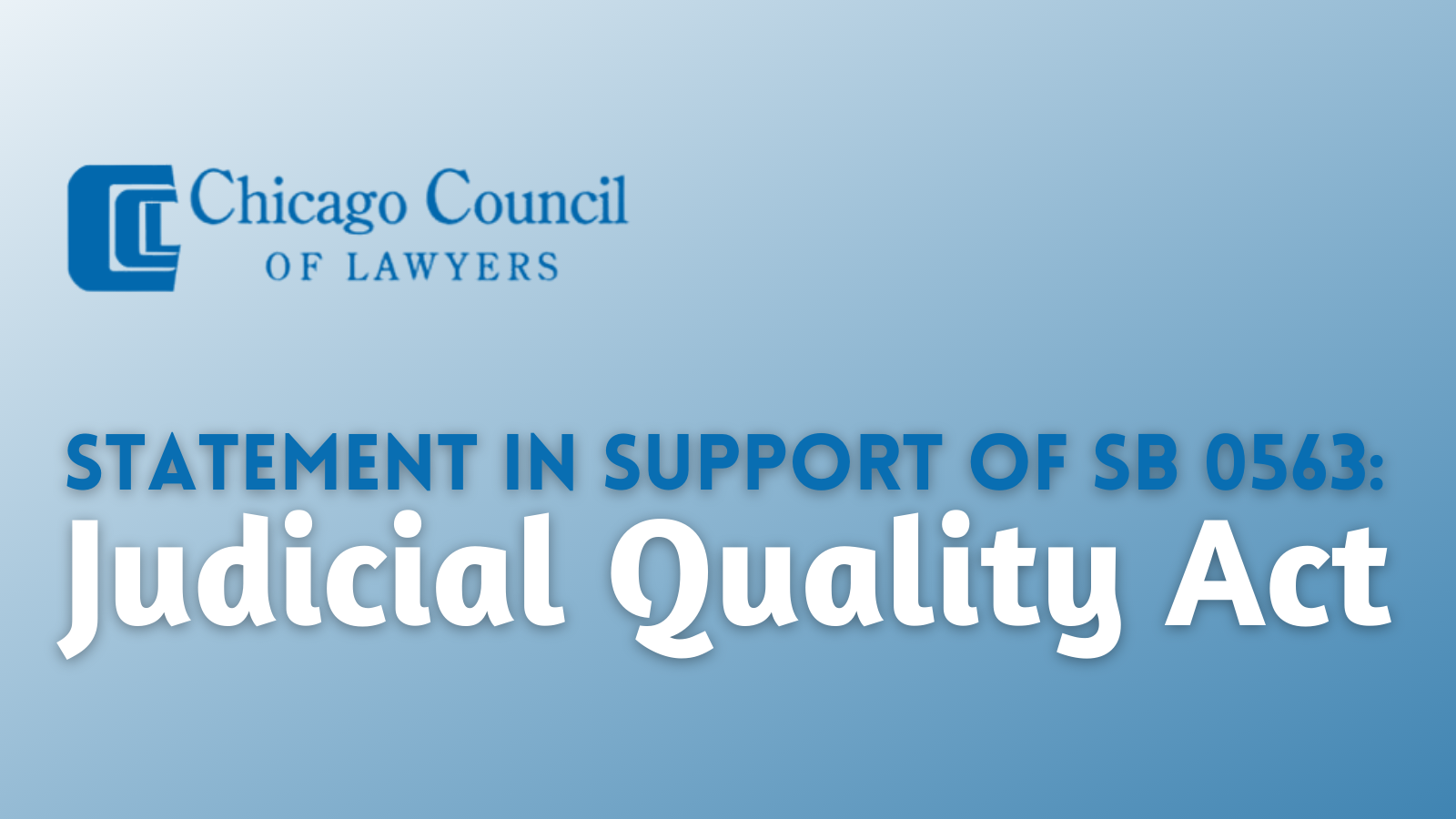Chicago Council of Lawyers’ Statement in Support of the Judicial Quality Act (SB 0563)
The Chicago Council of Lawyers strongly supports passage of SB 0653, the Judicial Quality Act (the “Act”).
The Act requires that the Administrative Office of the Illinois Courts “develop and implement an ongoing education and training program for judges and relevant court personnel regarding domestic violence or intimate partner violence, child abuse, racial bias in sentencing, cultural competency, lesbian, gay, bisexual, transgender, and gender nonconforming individuals, and the impact of trauma on youth brain development.” It provides requirements for the education and training program and allows that programing to be conducted virtually or in person.
The murders of Laquan McDonald, George Floyd, and Breonna Taylor; the Chicago Police Department’s raid on the home of Anjanette Young; the violence against members of the Asian American and Pacific Islander community; and many other recent incidents reflect how misunderstanding, bias, and prejudice continue to permeate our society and harm our neighbors. At a time when many people are wondering what more they can do and are looking to make institutions better and to increase their personal capacity for empathy and understanding, it is deeply disappointing that anyone in the Illinois court system, much less its leaders, would oppose a proposal designed in a targeted way to try to make the system fairer.
All participants in the judicial system can and must do better to create a system that works fairly for everyone in Illinois, regardless of their background or identity. While many efforts have been made to provide training to judges and other attorneys in recent years, data-driven studies and court watching tell us that we have so much further to go — in particular when it comes to identifying and addressing unconscious or implicit biases.
Scholars like Shankar Vedantam have explained that implicit bias is a form of bias in judgment or behavior that results from subtle cognitive processes and often operates at a level below conscious awareness and without intentional control. According to the ABA Journal:
In settings where decisions have far-reaching effects on the lives of others, actions influenced by unconscious biases can result in significant adverse consequences. In the courtroom, research demonstrates that judges more often rely on their intuitive assessments than on deliberative judgments, potentially leading to erroneous decision-making.
Implicit bias develops over time with the accumulation of personal experience and years of receiving cultural messages. Those messages are delivered both through formal education and through social learning, such as by observing family members, friends, or others in positions of influence, and are reinforced by institutional marginalization and structural racism. While implicit biases operate in subtle, automatic, and often insidious ways, the first step to addressing their influence is recognizing they are not inflexible and that all people possess them. It is critical for all attorneys – including judges – to continuously work to identify their implicit biases and act in anti-racist and anti-sexist ways to address them.
It is our experience that the most effective lawyers, whether judges, prosecutors, defense attorneys, or others, accept the fact that they – regardless of their background – harbor biases and assumptions and do everything they can to address them.
Many organizations and scholars have noted the ongoing effects of bias and lack of cultural understanding in the judicial system and determined that ongoing training directed specifically at those topics is a critical step towards eliminating their effects. The American Bar Association, the Federal Judicial Center, and others urge ongoing training and provide resources and programs to supplement existing materials.

